In this episode: Janet offers advice to a mother of two is severely frazzled by her children’s incessant demands and refusal to accept her limits. “I have been feeling beat up by the yelling and that they won’t stop arguing the boundaries!”
Transcript of “Kids Saying No to Boundaries (Screaming)” by Torin Thompson
Hi, this is Janet Lansbury, and in this segment of Janet Lansbury Unruffled, I’m going to answer a question about screaming.
Okay, here’s a question from Teresa from Facebook:
“Hi. I read your book. I love it. I love the communication tips and acknowledgement. It’s along the lines of how we parent our almost 3.5- and almost 5-year-old girls, but what drives me insane is the verbal, incessant demands/screams. While the girls follow directions and don’t bite, hit or kick (well, that’s nice) they do yell at me a LOT – lot in capital letters. I try to acknowledge their feelings while holding the boundaries firm and they are strong, insistent little people. They ask for something. I say no. They say, ‘But I want it!’ I explain why the answer is no and offer other options if possible and they just start yelling about how they want it. I acknowledge they’re upset and frustrated and then the screaming continues.”
Okay, I’m going to stop right here. So, “They ask for something, I say no.” Right, “No, this is what we’re doing,” or “This is what we’re not doing.” “They say, ‘But I want it.’” Okay. It’s helpful if this doesn’t jar us or grate on us, that we can just accept, “Oh, interesting. Yes. I know. It sounded like you wanted it.” Or something like that, on that level. Very unruffled. Very “you’ve got a right to complain and yell and scream and have your disagreement with my limit.”
This is the most important interaction for us to get comfortable with as parents. We disagree sometimes. You disagree with me. You don’t like what I choose as your wonderful parent that’s always looking out for you and looking out for our relationship and all these important things. A lot of the details of that are things that you, my child, are going to disagree with. That’s called being in a relationship, that’s called very, very healthy. So getting comfortable with this as parents is important, because what it sounds like is Teresa isn’t comfortable.
As soon as they say “But I want it,” now she feels like she’s got to come up with another answer or fix it or, you know, convince them further or do something else to make them not say something like that and definitely not scream, but actually both those things, “But I want it,” you know, whining, asking for it a million times, and screaming, stomping their feet, all of those things (again, it’s great that they don’t bite or hit, that would be something to calmly stop). But all of those reactions are within the realm of disagreement, the way children disagree. They don’t disagree very politely and diplomatically. “Actually, I disagree. I don’t like that choice that you made, Mother.” No, they do it like this.
Through these disagreements, they actually release other emotions, other stresses that they have, so it’s always positive. The bigger the overreaction, the more you can be sure they’re getting out of their system, and that’s a plus, because that means, like all of us, when we clear feelings, we feel better. Now we’re at our best again. Now we’re feeling happy, now we’re feeling comfortable, and if we can clear our feelings as a child, not only clear them, but have them be calmly accepted by our parents, that is one of the biggest gifts we can give children, because what we’re saying to them is, All these sides of you are okay with me. I accept all of you. I’m okay with you disagreeing. I’m okay with this side of you that’s not liking things that I do. It’s magic as parents if we can give that message.
Most of us as children did not get that message, that it was okay to be angry, that it was okay to disagree with our parents and have strong feelings about that. So again, this is gold, this is magic, this is the good stuff. Take advantage of these moments.
So they say, “But I want it,” and you might just look and nod and just nod your head. “Yeah, you want it,” without even saying that, saying that with a nod or a look. Very comfortable, very certain in your decision.
Then you explain, this is what Teresa said, she explains why the answer is no. I wouldn’t do that. Unless you want to give the briefest explanation, which I would probably give the first time when I say no. I would say, “No, that’s not safe,” or, “No, I don’t feel like doing that right now.” So you don’t have to explain further just because they’ve expressed their feeling about it, and the feeling started with, “But I want it.” Don’t get into trying to explain yourself. That’s trying to talk them out of disagreeing.
“…offer other options if possible.” So, no, you’re getting caught up in trying to fix it, trying to take away the disagreement. Well look, you can do this, you can do that, look at all these wonderful things you can do! Don’t be disappointed! Don’t be disagreeing with my decision. See, it works out fine.
Again, all the child feels is that you’re invalidating my right, you’re invalidating me and taking away my right to disagree and sometimes they’re disagreeing, again, because they need to blast you about the stresses they had at school that day or that you were gone at work or a number of other things, that they had trouble with a friend, or with their sibling, or something else. It’s important to trust. There’s always a reason and it’s always positive for them to disagree and have feelings about that.
Then Teresa says she offers other options and they just start yelling about how they want it. Right. Mom, you’re not letting me say no, You’re not letting me disagree. You’re not letting me have my feelings about this. It does tend to amplify the feelings when you’re not listening, you’re not, I’m not being heard here. Just let me be heard.
So roll out the red carpet for the screaming. I know this is counter intuitive, counter cultural, counter everything, but it’s very important and the key to having the comfortable relationship with your children that you want, that I know that you want. Roll out the red carpet. Scream to your heart’s content. This is what I’ve decided, I’m a great parent making great decisions. Not that you’re going to say that, but in your mind. I’m working hard to be the best parent for you.
So the screaming continues. Let it go. Let it blow. Let it flow. All of those things. Just let it be and it will stop. Have you seen children do this? I see it all the time with toddlers. They scream so loud, they yell so loud or they cry so hard and in that moment I feel like this is going to be the rest of my life in this situation and look what I’ve done to this child, and I go to all these terrible places. But when I’m brave, when I let my shoulders drop and just relax and roll out the red carpet for them to have their feeling or their response, it goes away. It goes away very quickly. It’s magical. So do this. Trust this process. Be this brave hero that says, Tell me, tell me how much you don’t like this, I want to hear, I want to hear the full extent of it. Blast me. I’m strong, I’m your mom, you’re my kids and this is normally and healthy for us to have this exchange. Telling yourself all those kinds of things will help.
Then she goes on to say, “The worst is in the car. I can’t say, ‘I won’t let you yell at me.’” Uh-oh, so she’s been saying, “I won’t let you yell at me.” That’s making this all worse because now, by saying, “I won’t let you yell at me,” you’re giving your child this big ticket to bother you. Here, look, here’s something that I can’t control you doing that really bothers me. I don’t want you to yell at me. So again, I would have the opposite attitude. I would be, Yell at me when you’re mad. You can’t hurt me with a yell.
So she’s set this up, as we commonly do, all of us, she has set up this situation where her children can use this as a power tool to bother her. So at that point it becomes something other than just pure, authentic I need to scream. It can become I need to scream plus I need my mother to figure out why her children can just do something like this so easily that blows her out of the water.
Anyway she says, “The worst is in the car. I can’t say, ‘I won’t let you yell at me,’ because I can’t stop them.”
That’s true. You can’t really ever stop someone yelling at you. You have to know deep in your heart that they will grow out of this, they will be able to self-regulate, they will not always be people yelling and screaming.
Now if we yell and scream, that’s going to be very profound modeling because everything we do is profound modeling, so that can actually create a screamer, but other than that, this will go away if we can respond to it calmly and allow it and accept it and not be fazed by it.
So she says, “While I remain calm, inside I feel trapped and tortured.” I think this is because, most of us, when we feel trapped and tortured by what our child does, it’s not just because the sound is loud, it’s because we feel it getting to us, like they’re being mean or we’re supposed to do something to make it better. Our child is not happy and that means the world is not good at this moment. We go to those kinds of places. So yes, it’s loud, yes, I would just calmly put your hand, your free hand if you have one, on your ear. If it’s terrible and you say, “Please, ok, guys, can you save that for when we get home?” or something.
If it’s really bothering you, then I would maybe pull over. I would really maybe consider if where you’re taking them is a privilege for them. If it is, I would be very honest. “I’m not going to sit in a screaming car while I take you girls shopping so we’re going to turn around.” That is a very honest, logical consequence and the only kind I would ever use, because it comes from your heart and your personal boundaries and you not being a doormat. So, I would stop it at that point, but there’s really nothing else that you can do that’s effective. And again, I wouldn’t even do that to be effective, I would do it because that’s your real feeling. I can’t stand this and I’m not going to take you somewhere fun if you can’t respect me on this.
Other than that, I would let it go. If you say anything, I would try to very much understate it. “Huh, that’s a bit loud.” “Hmm, that’s a bit strong.” Those kind of responses. Totally sucks the power out of these behaviors that come under the category of We Can’t Control This. Same with words that they use as weapons. Same with, well really almost everything, I would have a calm, This doesn’t bother me, you’re little kids, I’m a grown up attitude.
And that tends to diffuse so much of this and certainly take the testing out of it, making it more authentic. That will help you to know that, once you’ve taken your testing out it, that you’re being the recipient of testing, such an easy recipient of testing by having a reaction. Once you take that out of it, then behavior becomes much more purely authentic. Wow, she felt so upset that she just needed to scream. So our responses add on to these behaviors, putting a little edge on them, because it’s not just about that they need to scream, it’s about that they found this easy way to bother us. And it’s a little bit disconcerting that it can be so easy to bother your mother, who’s an adult, has been on this planet for a long time.
What Teresa says is, “It makes me want to cry.”
I’m sorry about that. Yeah, I think Teresa is going to a place of feeling victimized by this behavior, like her daughters are being bullies and just being so unkind and she’s taking this to a very personal place, which again is common for us to do. It’s not personal. The only thing personal about it is that we’ve had a big response to it, so that means what we do have is the power to totally diffuse this behavior and make it very, very rare by again under-reacting, knowing its healthy, knowing its positive, the more they get out the better, the less primal scream therapy bills you’re gonna have in the future. 🙂 That was one of Magda Gerber’s jokes, my mentor. She used to say sometimes that if a toddler was screaming, having a meltdown in one of her classes, she would say to the mother, “Well, she won’t need to go to primal scream therapy when she’s older.” And I know, that could seem cold, but we all got it. We got that this is healthy for children, young children especially, to do.
And teenagers, by the way, not that much different. They need to scream, they need to slam the door, they need maybe to say, “I hate you.” Those kind of things. So rather than seeing these kinds of behaviors as a fail or feeling like a victim to them, see them as a win. Not that you want your children to be upset, but a win for your relationship because of the way you’re handling it. The messages you’re giving your children are amazing. You’re safe with me. You can show me your dark sides. Your feelings are a safe place to go. I’m a Mom who knows what I’m doing. It’s a great opportunity.
Now Teresa says, “I have just been feeling beat up by the yelling and like they won’t stop arguing the boundaries!”
Okay, I didn’t even read that before I said it sounds like she feels bullied by her children. So, don’t be somebody that can be beat up by yelling. You’re bigger than that. You’re stronger than that. Rise above this. You can’t get beat up by yelling. So again, seeing this differently, rolling out the red carpet. Yell, yell louder, go guys, get it out, you really don’t like what I chose, you don’t like this boundary. Tell me. I want to hear it. If you had that attitude, you’d be set.
“But they won’t stop arguing the boundaries.” That’s a really good point. “They won’t stop arguing the boundaries.” No they won’t, but the question here is, why are you arguing the boundaries with them? It takes two to argue. If you’re not arguing back, there’s no one to argue with. So let them complain about the boundaries. Let them say what a terrible boundary that was, fifty thousand times, that they really want to do it and how could you do this and all? Again expressing feelings, positive, good. Rise higher. Rise above it. Imagine yourself this big, powerful person. Because you are in this relationship. And you know what? They need us to be. They need us to be big, powerful people in this relationship, because if not, they can’t be little kids in this relationship. They can’t be the kids unless we’re the big, powerful—comfortably and gently powerful—grownup.
So then Teresa says, “I feel like I’m doing something wrong because I’m feeling annoyed.”
Well, yeah, so what’s wrong is the way that she’s perceiving her children’s behavior and response to her limit. The way she’s perceiving it is what’s wrong. So feeling annoyed, if we’re perceiving this in a healthy way, won’t happen.
“I don’t know how to fix it.” That’s right, none of us know how to fix somebody else’s feelings. Throw your hands up and surrender to that.
“Thanks in advance if you can help.”
You’re very welcome, I really hope this helped. I share more about this in my book No Bad Kids, which is available on audio and Kindle and Nook and iBook and some other places I’m not thinking of right now. This should really help you get the dynamic of our relationship with our children around boundaries and how it feels to have that back and forth where we say, This is something that you really don’t want to hear, but this is how it’s going to be. We stay comfortable, they ask fifty thousand times. We keep nodding our heads, maybe, or we don’t, we keep letting it go.
Every ten times they say it, we say, “Wow, you’re still bothered by that, you’re still thinking about how I said no to that, you’re not liking that.” So it’s clear. It’s maybe a bit scary to go to these places and just let these feelings explode, but there’s a great freedom in it as well, and when you get used to this feeling, these feelings of diving into this, I don’t know, diving out of an airplane, whatever it feels like to just let feelings be, let them come at you and know that it’s not about you, it’s about them, very freeing. You may even get hooked on this. But it’s, as freeing as it is, it’s still going to be a challenge. It’s still a challenge for me with my older children. Every time I do it and, you know, afterwards, I pat myself on the back. You did it. You let them be themselves in this relationship with you. Be their worst selves in this relationship with you.
The amount of love they feel is incredible.
So that’s it for today. Thank you so much and don’t forget, we can do this.
(Photo by the wonderful Sara Prince!)

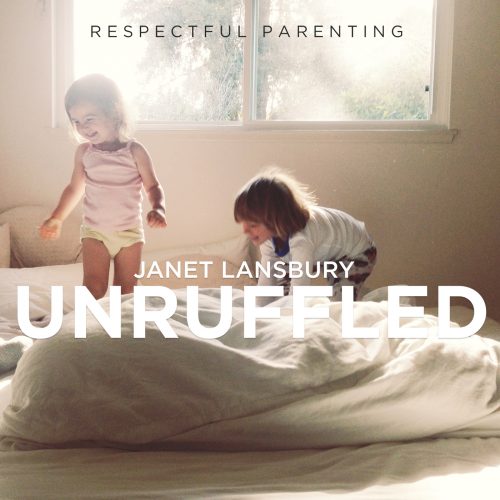
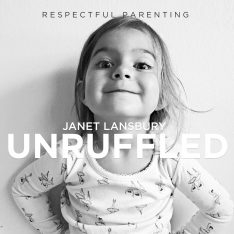
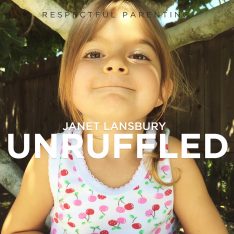
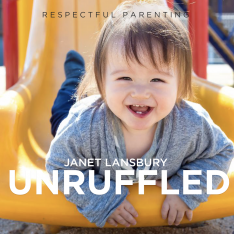

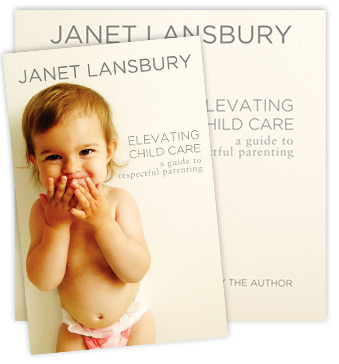

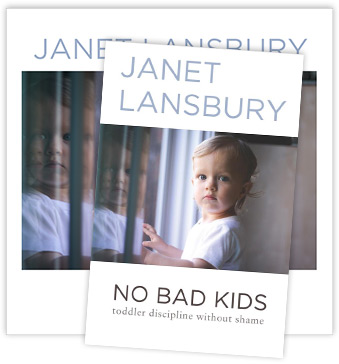

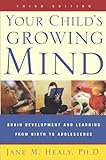
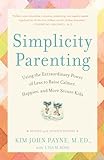
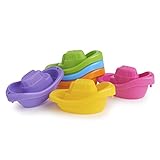
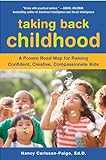

I bought “No Bad Kids” on audiobook, a couple weeks ago and have listened to it twice now. I first read the article “overwhelmed by toddlers demands/screams…” And that led me to “setting limits without yelling”. And I was feverishly taking notes and inspired me to buy the book. Anyway, my 4 year old screams in my face whenever he is frustrated, but somewhere in all my reading and listening, I missed the part where I was supposed to let him scream it out. So thank you for this article. I too was saying “I won’t let you tell at me” ….whilst beside him in his room where we would sit while he diffused. I do feel like I am doing something wrong when I see him get so frustrated and angry. He is actually a really easy and happy boy so I just felt like I was doing wrong by him if he was finding stressful moments and rage. So anyway, thanks for this article! I will move forward knowing he just needs to express himself and feel all the feelings.
I’m so glad this is clearer for you now. Thank you for listening to my audiobook as well!
I really love and have used the advice from you Janet for both my kiddos. But I have an almost 6 year old screamer and I just can’t figure out how this approach makes sense. Her screaming completely ruins the energy of the room, and even if we remain unruffled, there is no way to continue on with our day. I suppose that is the same as hitting, biting, etc, but those actions can be stopped. It feels extremely unfair not only to us as parents, but now to her younger brother, who is often the recipient of the disrespectful yelling and screaming. If I separate them, she will scream at me (or her dad) while we sit with her, for as long as I can stand it (upwards of 30 minutes) before I do something to make her stop (tickling, a show, etc), or find a way to lock her in her own space (she can now get out of the current lock). I NEVER did anything like this prior to the last year or so when this became a problem. I am extremely sensitive to sound/noise and I just don’t see any way of honestly telling her that screaming AT PEOPLE is ok. Screaming on your own, fine. Screaming in a pillow, great. I will sit with her all day if she needs. But screaming in my ear, at her brother, whining, etc, seems nonnegotiable, and just as violent and unacceptable as physical violence, and like the only time I have found that it seems reasonable to separate her until she can find a way to calm down.
I would love more thoughts!
I would also love some feedback regarding Margo’s comment. I am a toddler teacher, and believe in firm boundaries and the merits of letting the kids process their emotions through screaming and crying. However, it really can be damaging to hearing (for teachers and classmates alike) while inside a classroom, not to mention disruptive to the child’s classmates. While we’re outside in a large space, there are no issues, as the sound reverberation isn’t an issue, and classmates will just move away from the child who is screaming/ crying.
I would also love to hear a response to this comment. I’ve been searching the website for this for my 4 year old.
I would love for help with this as well!
Me too!
Hi Janet I love your booms and podcasts!
Do you have any clarification when the screaming is between siblings?
One if my twins makes a loud noise near his brother and then the other twin reacts so loudly with hysterical crying and screaming, louder than the first twins noise/scream.
I will go and be close to them and sportscast but I feel like it’s getting worse. We also have visitors in the house who really chant stand the screaming!
Thanks for your help!
I find this helpful, but for us, the scream is so so loud I am concerned that our newborn is getting hearing damage (and me, but I am less concerned about that) and that takes me to a place of absolute helplessness for the little one which doesn’t feel fair for the screamer. I can see there are some comments above about this. So specifically, how do we guide someone out of screaming when it is literally damaging someone else’s hearing?
Also would be interesting to know how to apply this in situations where refusal isn’t an option. My five year old hates walking the dog and refuses to come, screams, cries and refuses to walk out the door.
I am a single mum with other kids, the dog is a young dog who needs his walks. We can’t not go and we don’t always have hours to sit down and roll the red carpet out for the screaming. Dragging her out of the door isn’t an option. Leaving her at home alone isn’t an option although I have empty threatened that one hundreds of times. The only way to deal with it is to offer a bribe, or to threaten to remove a privelage eg no screen time later that day if she doesn’t come.
So I understand that yes let’s set boundaries and roll out the red carpet but what if you need to go somewhere? Or leaving the playground for example, is a classic one. Roll out the red carpet for feelings, but how can you manhandle a strong and large five year old or over, into a car seat? I certainly cant, I can’t physically do it without harming her.
What would you do in that situation?
Following!
That’s the two points I struggle with. I can handle these situations one way when I’m at home and have time. When we need to get moving- making something physically happen is where I struggle. She’s been primed. She’s had time. She knows what to expect… but mum just one more thing I simply must do or desolving into screaming and I hate yous. Can you kindly buy physically make a 5 year old get dressed??
The second one is in public and what you allow your kid to do to others- because most people get extremely offended or upset when getting screamed at or witnessing a kid have a huge melt down. Or other kids get plain scared or nervous or upset themselves.
Hi Janet,
I understand that yelling can be a release for our kids, and I’m fine with the yelling (by the way, I highly recommend Loop sound reducing ear plugs!) However, my 5 year old son escalates the more he is told no, and he becomes physical. He throws food, he overturns chairs, he smashes objects, and then he starts hitting, kicking, and biting. We try to validate his feelings and get him to take deep breaths, hug himself, give him a hug, etc. but it just makes him worse.
How do I let him get his feelings out without destroying our house, physically hurting us, and upsetting his younger siblings?
Following for the answers to these questions! I guess the issue is that the walking etc is overwhelming for the child but we can’t always control our environment or let the child stay home. Could you ask the daughter what it is about walking or getting in the car seat that she doesn’t like (maybe when it’s not about to happen) and see what she says? And also maybe explain that we need to take care of the dog, otherwise we cannot keep the dog?
HI, really love this, but I can’t seem to find the audio episode, is it not archived?